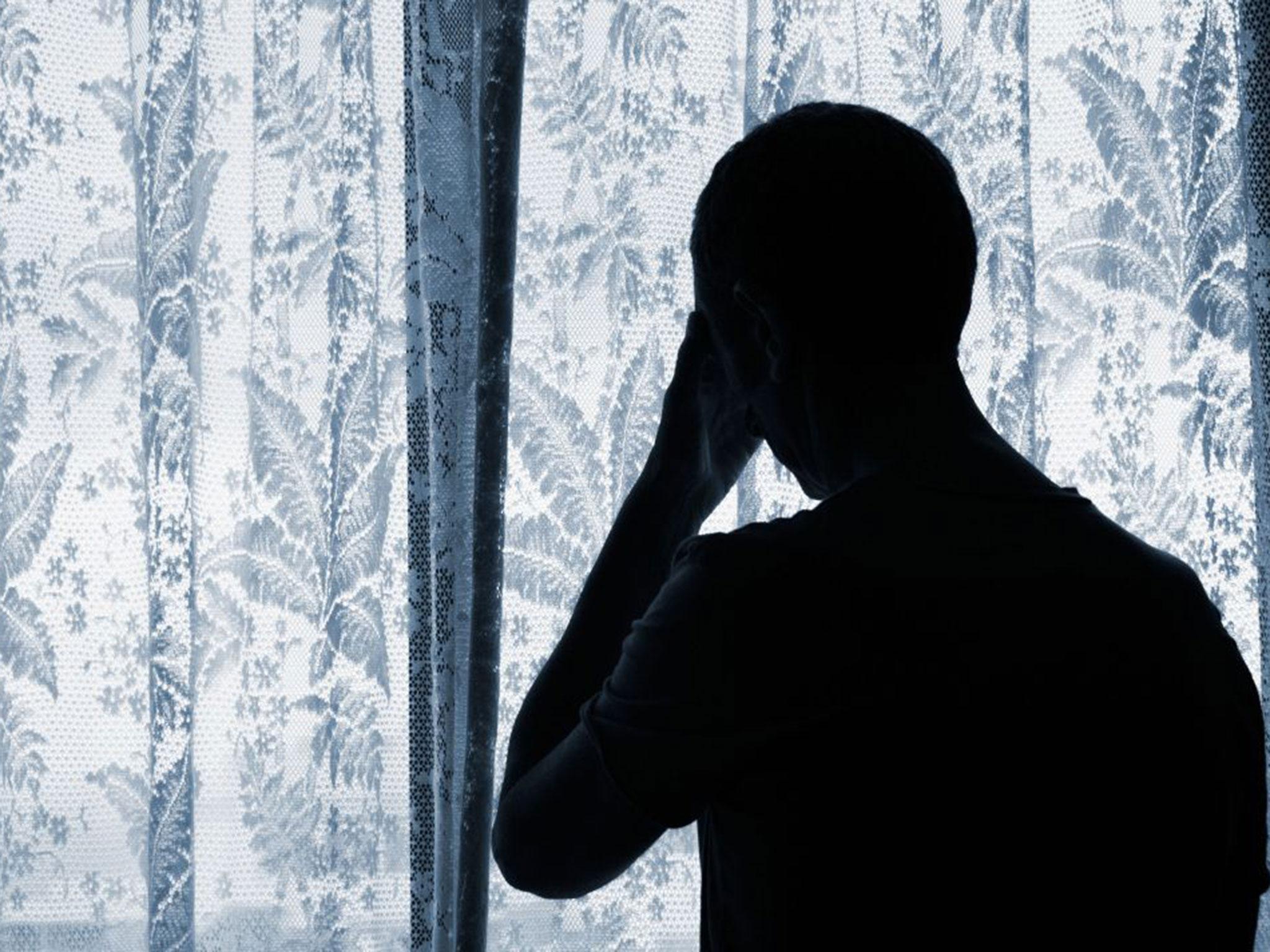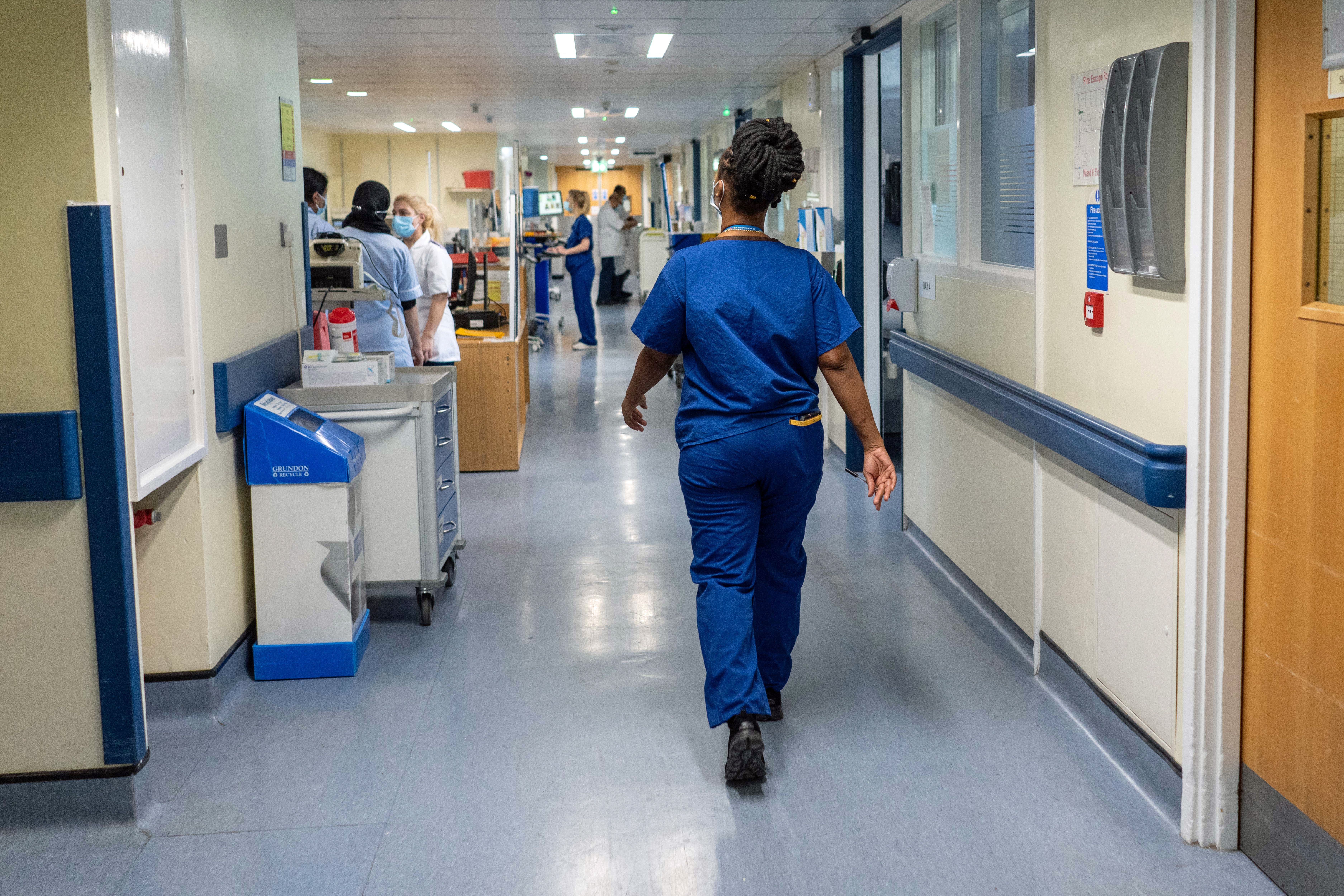NHS race watchdog urges action as new report highlights racism impact on mental health
A report has found that racism not only causes psychological trauma but discrimination within the services also slows rates of recovery.

Your support helps us to tell the story
From reproductive rights to climate change to Big Tech, The Independent is on the ground when the story is developing. Whether it's investigating the financials of Elon Musk's pro-Trump PAC or producing our latest documentary, 'The A Word', which shines a light on the American women fighting for reproductive rights, we know how important it is to parse out the facts from the messaging.
At such a critical moment in US history, we need reporters on the ground. Your donation allows us to keep sending journalists to speak to both sides of the story.
The Independent is trusted by Americans across the entire political spectrum. And unlike many other quality news outlets, we choose not to lock Americans out of our reporting and analysis with paywalls. We believe quality journalism should be available to everyone, paid for by those who can afford it.
Your support makes all the difference.Black people are four times more likely to be sectioned in the UK as the NHS’ race watchdog has warned that discrimination is playing a part in the high figures.
A new report has found that racism not only causes psychological trauma but discrimination within the services also stops people from accessing services and slows their rates of recovery.
Black people in Britain are four times more likely to be sectioned than their white counterparts, while Community Treatment Orders (CTOs) – requiring a person to receive supervised treatment in the community – are used for Black people at 11 times the rate of white people.
Responding to the findings by the report Pursuing racial justice in mental health, published by the charity Centre for Mental Health (CMH), Professor Habib Naqvi, chief executive of NHS Race and Health Observatory, told The Independent: “We remain concerned at the rate of Black people who are subject to restrictive interventions when experiencing episodes of mental health.

“A range of complex causes are likely to account for this pattern, however, it is critical that we also focus on the underlying causes of these disparities including the impact of discrimination and bias on access, experience of mental health services, and therefore outcomes.
“We also know Black African and Caribbean communities, in particular, face barriers in accessing specific mental health services; they are less likely to self-refer to psychological/talking therapies and are less likely to be referred to such services by GPs.”
Aside from racism blighting the chances of timely and effective treatment, economic factors are also widely cited as reasons for these inequalities.
The report, which draws on insights from people living and working in the Bradford District and Craven areas, concludes that people from minority communities can face sometimes “insurmountable” obstacles to support, for instance where service information is not offered in community languages, or where interpreters are not provided.
NHS Providers, the membership organisation for the NHS hospital, mental health, community and ambulance services, is calling for “decisive cross-government action” to tackle wider factors including poverty, poor housing and unemployment that mean poorer health for people from an ethnic minority.
Saffron Cordery, the deputy chief executive of NHS Providers, said: “This report lays bare how experiencing racism causes poor mental health and prevents ethnic minority people from getting the help they need, when they need it.
“Trust leaders know much more needs to be done to tackle deep-rooted structural racism, bias and discrimination in health services which leads to worse outcomes and experiences for people from an ethnic minority.
“Action needs to be taken to remove the many barriers which prevent people from ethnic minorities accessing mental health care services.”
The report also finds that the mental health impacts of racism are compounded by poverty and poor housing, with some people struggling to pay for public transport to get to mental health appointments.
“My parents have obviously lost a lot of people during Covid, my mum doesn’t speak English, not that well anyway, and the rest of the family all got bereavement counselling offered to them by doctors but my mum hasn’t,” one patient told researchers.
The lack of support meant the patient’s mother, who lost a family member, was left very fragile when the deceased was mentioned in conversation: “… just at the slightest [thing] my mum bursts out crying because there is no bereavement support in her own language.”

Stigma can deter some people from minority communities from accessing support before they reach crisis point.
Participants in CMH’s study explained that visiting a GP surgery enabled them to access mental health support without facing the stigma attached to mental health services.
Health and care services across the country should build stronger partnerships with community organisations to deliver mental health support that overcomes the harms and barriers caused by racism, the report suggests.
Unless these are acknowledged and addressed, the NHS will fall short of offering equitable health care as it is duty-bound to do, researchers warn.
Andy Bell, chief executive at the Centre for Mental Health, said: “Racism is endemic in our society and is toxic to people’s mental health.
“We urge system leaders in other parts of the country to make a similar commitment, to work in partnership with their communities to challenge racism and racial injustice in and around their mental health services.”
Over the years, numerous studies have been published by organisations including many by the NHS, Mind and the Care Quality Commission (CQC) highlighting racial disparities in mental health outcomes, however the gap remains significant.
Despite thousands fewer detentions under the Mental Health Act, according to the latest figures, mental health services across England are overstretched and understaffed.
A Department of Health and Social Care spokesperson said: “No one should face unfair treatment because of their race and we are committed to reforming the Mental Health Act when parliamentary time allows to address racial disparities in mental health services.
“We are also piloting advocacy services to support the needs of people from ethnic minority groups, with trained advocates ensuring that cultural differences - such as religious preferences or specific communication requirements - are understood and acted upon.”
Join our commenting forum
Join thought-provoking conversations, follow other Independent readers and see their replies
0Comments